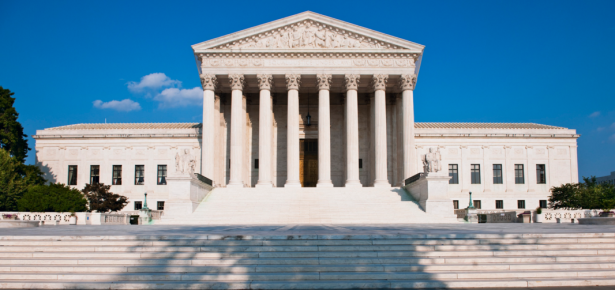
In the last several presidential elections, advocates from both parties have highlighted the composition of the Supreme Court as a major implication of the election results. The Court features particularly strongly in get-out-the-vote efforts, with both sides expressing the fear that, if the other side gets elected, major legal consequences in the “culture wars” (abortion, gay rights, etc.) as well as economic regulation (the Affordable Care Act) will result.
This will only intensify in 2016. With the death of Justice Antonin Scalia, the Supreme Court is in flux already: if President Obama successfully nominates a replacement, the Court may shift drastically to the left; if he does not and a Republican president is elected, that president will get at least one, if not two, nominations, and has the potential to shift the court to the right. We can expect electoral politics to play an overwhelming role in the President’s choice of whom to nominate and the Republican-controlled Senate’s choices about whom to confirm; we can also expect both parties to intensify their court-related voter advocacy.
On a conventional view of the rule of law and the role of the courts in a democracy under law, this seems like a problem. Rule-of-law liberal democracies are supposed to have “independent judiciaries,” a concept that is supposed to mean something like this: the courts are depoliticized, insulated from political pressure or influence, making their rulings according to the law alone rather than according to the political ideologies of the judges or those who appoint them. This ideal of judicial independence is supposed to explain why it’s good to have judges that have life tenure, as opposed to elected judges (as in many U.S. states). Yet, if the appointments process is too politicized, life tenure starts to look like a bad thing rather than a good thing; not as a way to get judges who will uphold the law “without fear or favor” but as a way for parties to convert short-term electoral victories into long-term control over the legal system, and that way entrench their ideologies into constitutional law.
I’m not sure we should be quite so worried. Here are some reasons why.
First, the life tenure part is what really matters. As I argue in The Rule of Law in the Real World, the key feature of judicial independence is that those who enforce the law do not themselves pay the costs of doing so—it is this that allows states to commit to enforcing the law against the powerful, whether private individuals or political officials. Judges with life tenure (and fixed pay) are largely immune to punishment from enforcing the law (absent the outside risk of impeachment), and the system does a decent job of satisfying this criterion no matter how politicized their appointment. Indeed, Supreme Court justices, secure in their life tenure, often stray from the ideologies of the presidents who have appointed them—let us not forget that both Earl Warren and William Brennan were appointed by Republican Dwight Eisenhower, and that Harry Blackmun, who wrote Roe v. Wade, was appointed by Richard Nixon.
Second, judges are subject to some pressure toward professionalization. As the greatest of rule of law scholars, E.P. Thompson, once said, “In the case of an ancient historical formation like the law, a discipline which requires years of exacting study to master, there will always be some men who actively believe in their own procedures and in the logic of justice.” Even though politically appointed judges often come with distinct ideologies, the demands of the judicial role in a rule of law culture, including the obligation to give a coherent legal argument for one’s opinions, seems sometimes to be able to push judges away from naked politicization.
We can see that even in Justice Scalia’s opinions: although he was an extreme ideological conservative, his commitment to a semi-coherent theory of constitutional interpretation (originalism) often led him to vote more in accord with the liberal members of the court, such as in a number of cases protecting the rights of criminal defendants. It was Scalia as judge, not Scalia as Reagan-appointed ideologue, who wrote the great dissent in Hamdi v. Rumsfeld, in which he argued that U.S. citizens simply may not be detained as “enemy combatants” absent an explicit Congressional suspension of the writ of habeas corups—instead, they must be tried for treason, under all the restrictions written for that crime in the Constitution, or they must be let go.
Third, some degree of politicalization is necessary for an independent judiciary to function. The Supreme Court controls no troops and no dollars; if it is able to compel the other branches of government to obey the law, it must be through its power to leverage public support. Much of that support must come from its credibility as a neutral and apolitical arbitrer of the law, which is itself accepted by the people—but some of it also must come from its connectedness to the political process. Court rulings that are wildly disconnected from the urgent policy needs and political and ethical commitments of the people ultimately will not be obeyed, and a political appointments process can serve to keep a connection between the Court and political change.
To be sure, the Court must still avoid excessive politicization. Shameful cases like Bush v. Gore, where the Court chose a presidential candidate along a party-line vote, seem like clear threats to the rule of law. But I don’t see much to fear in the composition of the Supreme Court being a major election issue.
Latest Comments
Have your say!